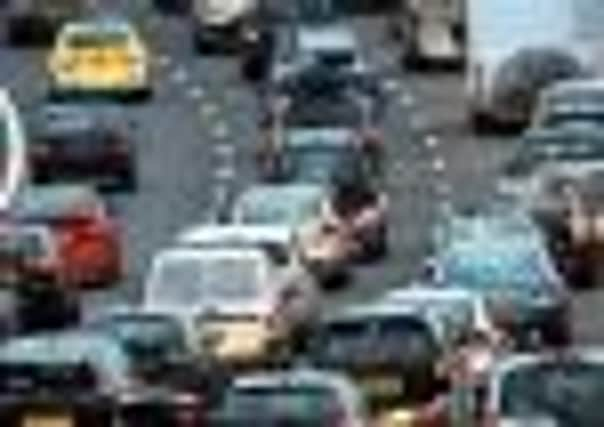All I need is the air that I breathe... providing it does not kill me


A report by a committee of MPs estimated that 200,000 people a year are dying prematurely because of poor air quality, which can lead to, or exacerbate, respiratory infections, as well as heart and lung diseases.
It estimates that the lives of those most badly affected by air pollution are being shortened by an average of two years.
Advertisement
Hide AdAdvertisement
Hide AdIn addition to emissions from power stations and vehicle exhausts, including carbon monoxide and nitrogen oxides, particles from tyres and brakes are a significant source of airborne pollution. It’s not the first time, the impact of failing to tackle air pollution has been questioned.
Research published earlier this year by the Aphekom group of European scientists suggested living near a busy road could account for 15-30 per cent of cases of lung disease and coronary heart disease in adults aged over 65.
Experts believe pollution can not only increase the risk of respiratory infection and exacerbate conditions like asthma, but can increase the risk of heart disease through the absorption of tiny particles into the blood.
“Essentially, pollution outdoors is probably doing much the same as tobacco smoke indoors,” explains Professor John Britton, an expert in respiratory medicine at the University of Nottingham.
Advertisement
Hide AdAdvertisement
Hide Ad“People often don not know that they have narrowing of the arteries in the heart, and a little bit more clotting on top of that could result in a major event, for example a heart attack.”
“Unfortunately there’s not a great deal people can do to avoid such emissions. Masks aren’t going to make much difference – the gases will just go around a mask as the particles are so small.
If you’re breathing air in, you’ll get the particles. The best way to improve air quality is to cut emissions by using less road transport and cleaner energy.”
The recent Aphekom study also suggested that living near a busy road could account for 15-30 per cent of new cases of asthma in children, and Dr Atul Gupta, a consultant in paediatric respiratory medicine at King’s College Hospital, London, says this may be linked to the fact that air pollution can affect both the immune system and the lungs.
Advertisement
Hide AdAdvertisement
Hide Ad“Children’s immune systems and lungs aren’t fully developed, and exposure to air pollution weakens them,” he says.
“Also, children spend a lot of time outdoors compared to adults, where there may be a concentration of pollution from traffic and other sources.”
He says studies have shown that air pollution is associated with the development of asthma and allergic tendencies, and that there is a higher incidence of bronchitis and chronic coughs where there’s air pollution.
The Environmental Audit Committee report called for the Government to launch a public awareness campaign informing people how they can reduce emissions and their exposure to air pollution.
Advertisement
Hide AdAdvertisement
Hide Ad“Air pollution in the UK represents a huge public health crisis, contributing to more premature deaths than obesity and passive smoking combined,” says Lewis Merdler, campaign manager at Environmental Protection UK.
“It’s a scandal the Government isn’t doing more to protect the most vulnerable in our communities from dangerous levels of air pollution.”